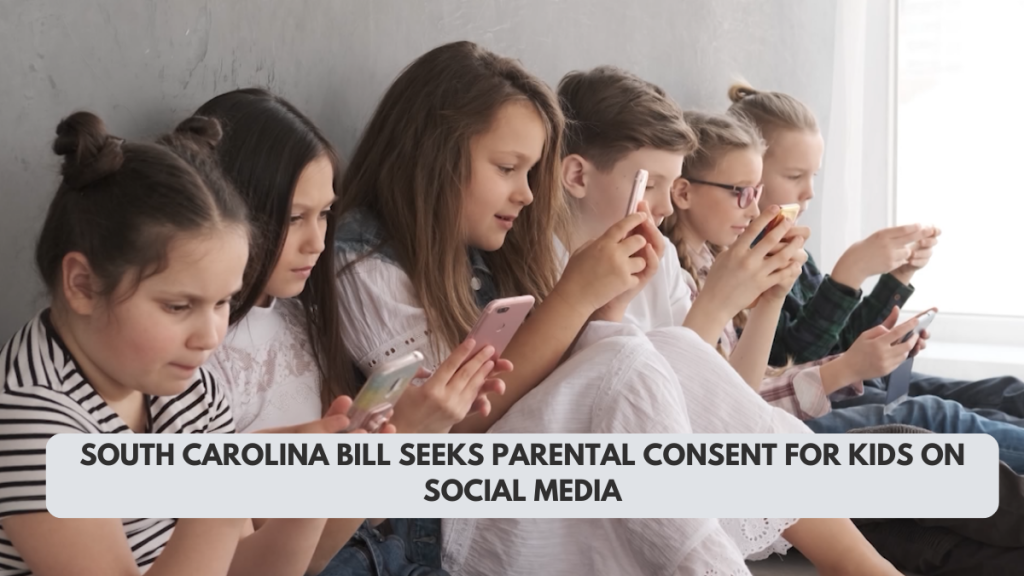
In an effort to enhance child safety online, South Carolina lawmakers have proposed legislation that would mandate minors under the age of 18 to obtain explicit parental consent before accessing social media platforms. The bill, officially titled the “South Carolina Social Media Regulation Act,” has sparked both support and controversy as it moves through the state legislature.
Parental Permission and Age Verification
Introduced as House Bill 3431, the proposal outlines strict guidelines for social media companies operating within South Carolina. Under the bill, minors must secure clear and explicit consent from a parent or guardian before creating or maintaining accounts on platforms like Instagram, Facebook, Snapchat, TikTok, and others.
The bill specifically defines acceptable methods of verifying parental consent, including signed consent forms, video conferencing, toll-free verification calls, or the use of government-issued identification. This structured approach aims to ensure accurate verification while safeguarding personal information (South Carolina State House).
Moreover, social media companies would be required to establish commercially reasonable procedures to verify the ages of users. Alternatively, they could choose to universally implement minor-specific safeguards across all user accounts within the state.
Protective Measures for Minors

The bill emphasizes a suite of protective measures that social media companies must adopt to ensure online safety for young users. Key provisions include:
- Prohibiting unsolicited direct messages from adults who are not already connected with minors.
- Limiting targeted advertising towards minors to reduce exploitation and manipulation.
- Restricting data collection practices, specifically focusing on the personal information of minors.
- Implementing content filters designed to block or limit exposure to harmful or inappropriate content such as material that promotes self-harm, violence, or illegal activities (South Carolina State House).
These measures are intended to address growing concerns among parents, educators, and policymakers about the potential harm that unrestricted social media use can cause children and teenagers.
Parental Supervision Tools
A key aspect of the bill includes mandating social media platforms to provide practical tools that allow parents or guardians to supervise their child’s online activity effectively. Specifically, these tools would enable parents to:
- View and adjust privacy settings on their child’s social media accounts.
- Monitor and manage their child’s online connections.
- Set time limits and schedule mandatory breaks from social media usage.
The provision aims to empower parents with greater control and transparency regarding their children’s digital activities, fostering a safer online environment (South Carolina State House).
Legislative Progress and Broader Context
House Bill 3431 was passed by the South Carolina House of Representatives on February 20, 2025, with an overwhelming 89–14 vote. It currently awaits further consideration in the South Carolina Senate, where it will face additional scrutiny and debate (Wikipedia).
South Carolina’s initiative aligns with broader national trends as numerous other states explore similar legislative approaches. States such as Utah and Georgia have introduced comparable measures aimed at tightening regulations around social media use among minors, reflecting a growing legislative emphasis on child safety online (Mayer Brown).
Criticism and Concerns

While advocates praise the proposed bill as an essential step toward protecting minors from online risks, critics raise concerns related to privacy, data security, and freedom of speech. Privacy advocates argue that mandatory age verification and data collection could lead to unintended consequences, including increased surveillance and potential misuse of sensitive personal information (Wall Street Journal).
Further criticism revolves around the practical challenges of reliably verifying users’ ages without infringing on their privacy. Skeptics of the bill also warn about potential infringement on minors’ rights to free expression and access to information, suggesting that overly restrictive measures could disadvantage younger users in accessing beneficial online resources and communities.
Conclusion
As the South Carolina Social Media Regulation Act progresses through legislative channels, it continues to generate significant debate. The outcome could set important precedents for how states nationwide address social media regulation and child online safety. Lawmakers, parents, and tech companies alike are closely monitoring developments, aware of the potential for both positive impacts on child safety and broader implications for privacy and digital rights.
For more information, visit the official legislative page for House Bill 3431 on the South Carolina State House website.



